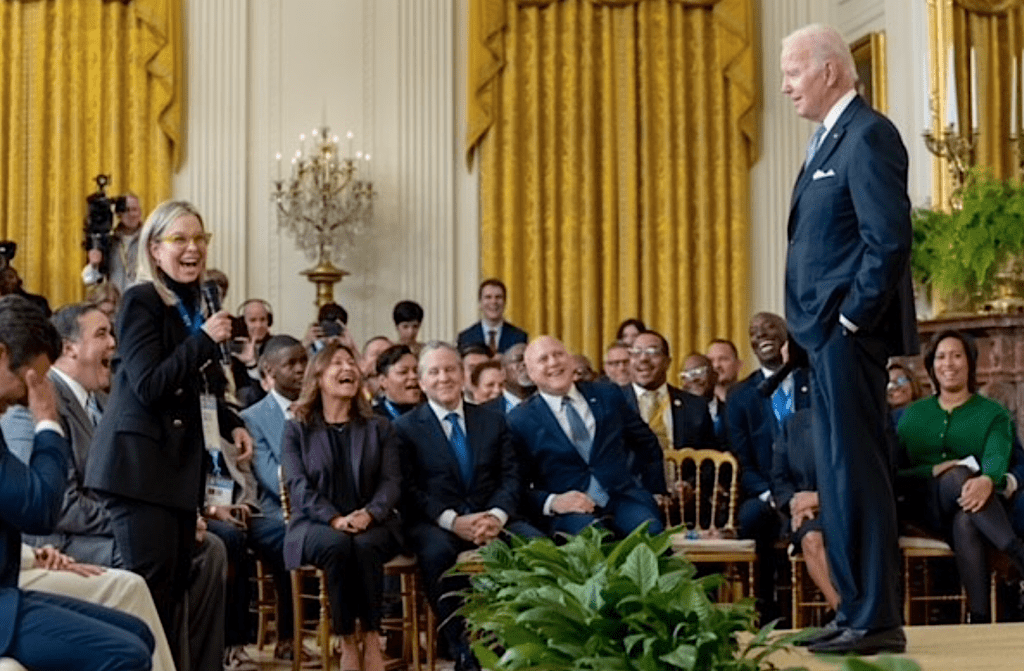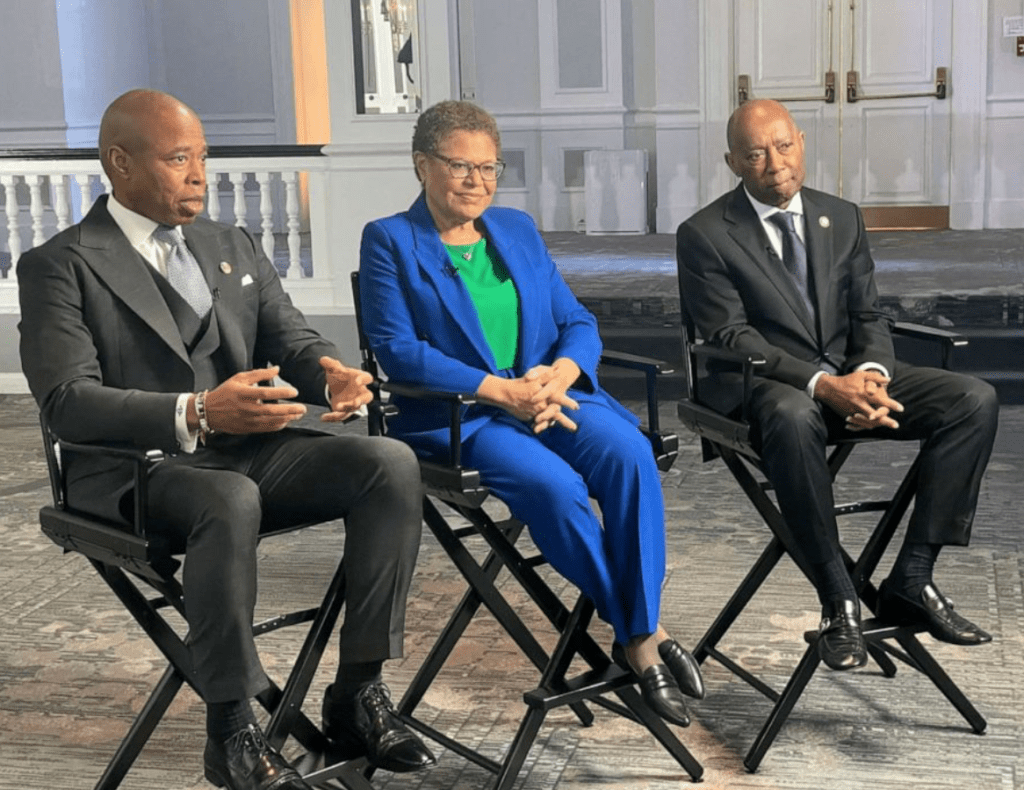At U.S. Mayors’ Conference, Top Issues: Public Safety, Homelessness, Migrants
By • January 23, 2023 0 1272

Bringing life back to downtowns, public safety, gun violence, mental health, homelessness, policing, affordable housing, partnering with NGOs, businesses and private parties to fix things and pickleball, “the latest sport transforming cities,” were just some of the topics covered in one of the best national conferences held in Washington, D.C. every year: that of the bipartisan U.S. Conference of Mayors made up of more than 1,400 mayors from across the United States, representing cities with a population of 30,000 and larger.
Hosting the conference in D.C. of over 1,000 attendees and their top-get speakers at the downtown Capital Hilton undoubtedly enhances the stature of Mayor Muriel Bowser who always greets them and usually moderates a key panel. The conference from Jan. 17 to 20 at the Hilton at 16h & K was attended by over 1,000 mayors who were highly diverse in every way. They are on the front line of every issue confronting America and polls show that mayors are the most trusted public servants in the country. They came to the nation’s capital to share their concerns, stories, contacts, ideas and best practices and to attend sessions by experts and President Biden’s Administration secretaries. Most all the issues were relevant to D.C.
The administration’s obvious goal was to convince the nation’s mayors to implement the multiple trillion-dollar legislation that crown its list of achievements so far, especially the one-trillion dollar Infrastructure and Jobs Act that states and mayors can apply to, to invest in renewable energy sources and repair aging infrastructure. There were information booths and workshop, along with experts throughout the conference to help mayors apply.
Mayor Bowser chaired an unusual special session, “A Mayor’s Role In International Diplomacy,” indicating an increasing challenge to mayors throughout the U.S. as they deal with international businesses, entrepreneurs, students, energy and product innovations from abroad. For the District of Columbia, city diplomacy is done through its own Department of State in conjunction with the U.S. State Department’s Special Representative for City and State Diplomacy, Bowser explained. The well attended session included the ambassadors from Mexico and the United Kingdom.
The U.S. Surgeon General Vivek Murthy, who is well known in Georgetown, headed another well attended session, “The Mayor’s Role in Supporting Mental Health in Communities.” Murphy focused especially on what he considers one of the major health problems in the country: isolation and loneliness.
Former Metropolitan Police Chief Charles Ramsey focused a conference panel on “Current Issues in Policing” — police recruitment, retention and building community trust. He retired in 2006 and became Police Commissioner in Philadelphia and advisor to the conference of mayors.
But the top focus in the lunch plenary sessions on Jan. 18 and 19, headed by the conference’s President and Miami’s highly energetic mayor Francis X. Suarez, as well as in a special session that was closed to the press, was on the influx of migrants into U.S. cities. “Asylum seekers is a huge problem for every mayor in our nation,” said New York City Mayor Eric Adams, the top featured speaker at the opening plenary. He named the influx of migrants into New York City along with gun violence and deaths from opioids as the top safety problems of the city.
“We don’t have the luxury of an open checkbook when it comes to welcoming and helping new migrants” Suarez said. We need help.”
Mayors at the table where I sat agreed. “So true,” said two women mayors from Washington State. “We increasingly are finding groups of six to eight men in their late 20s, early 30s, living crowded in basements and sheds in substandard conditions, and we don’t have the means to give them long-term help.” Two California mayors, both Hispanics, applauded when Suarez emphasized “supporting our police and the rule of law.”
But the Secretary of the Department of Homeland Security Alejandro Mayorkas — who lives on 29th Street in Georgetown and was this year’s big get for the mayor’s conference — did not seem to agree.
“The biggest threat in the next ten to 12 years will be from the home-grown variety — small groups of people inside the country who commit violence and threaten our power and communications infrastructure,” said Mayorkas, who is the first Hispanic and son of immigrants to hold the top cabinet position. “Migrant influx into cities is not unique to the U.S.”
“The challenges of world migration are evolving and can only be met if we all work together – cities and non-profits and government agencies in partnership,” Majorkas said “FEMA disaster services will offer some relief as well as new programs to allow lawful entry for non-citizens, coordinated by the border patrol and ICE (Immigration and Customs Enforcement). There is also a new program to offer relief to non-citizen workers who experience predatory employers.”
The U.S. Conference of Mayors celebrated its opening night, Jan. 17, at a reception and party at the Embassy of the United Arab Emirates. To close out the 91st Winter Meeting of the conference, President Biden hosted a bipartisan group of nearly 200 mayors at the White House.

New York City Mayor Eric Adams, Los Angeles Mayor Karen Bass and Houston Mayor Sylvester Turner sit down for an interview with ABC News’s Jonathan Karl. Courtesy ABC News.

